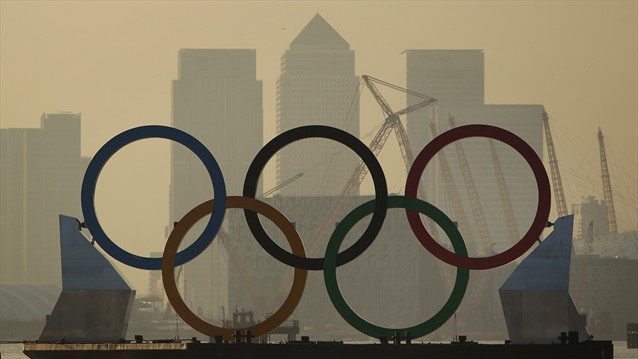By George Grant.
Tripoli, 20 July:

Libya’s Olympic squad is still waiting for a fatwa from the grand mufti, Sheikh Sadik Al-Ghariani, authorising . . .[restrict]athletes to break their Ramadan fast for the London 2012 Olympic Games, the Libya Herald can reveal.
The extraordinary delay threatens to jeopardise Libya’s Olympic hopes, with athletes needing to maintain a strict regimen of meals and sleeping-patterns to ensure their bodies are in peak condition to perform.
“We sent Sheikh Ghariani a formal letter but he has not replied”, said Fatima Alawy, an official on the Olympic committee. “The athletes will be training every day and this delay is too long”.
Ghariani is Libya’s highest religious authority, and the Olympic committee is looking to his interpretation of Islamic jurisprudence as the final word on whether or not breaking the fast would be acceptable or not.
In neighbouring Egypt, the Fatwa Council of El-Azhar, the country’s pre-eminet religious authority, recently decreed that athletes could break their fast, citing a particular school of jurisprudence for the interpretation of Islamic teaching:
“According to Hanafi scholars, it is permissible to break fasting while travelling if the duration will not exceed 15 days… If a person was to stay in his country of destination more than the mentioned duration, he must fast as long as he is able and it won’t impose difficulty on him”.
Asked if such rulings would prove sufficient to reassure their own athletes, some members of Libya’s Olympic team have said that confirmation from Ghariani will still be needed if they are not to risk compromising their faith to compete.
“I do not want to risk violating Islam”, said Ali El-Kekli, who is competing in the 85kg weightlifting category at the games. “I will observe the fast unless I receive approval from Sheikh Ghariani that it is acceptable not to do so”.
El-Kekli’s trainer, Abdulsalem Wershefany, has said he is very worried about the effects fasting would have, even if it were just for a few days.
“It would have a huge effect. Ali needs to eat five times a day and he should sleep for at least 12-15 hours. Iron, salts, calcium and sugars all need to maintained at consistent levels in his body, which isn’t possible when fasting during Ramadan”.
Although the Olympics do not begin until 27 July, Ramadan began today, and Libya’s Olympic officials have said they are working to get approval from Ghariani as soon as possible.
“We are flying to London tomorrow, but we will make sure that one of our colleagues here goes to see Sheikh Ghariani to discuss this. To get a reply a bit late is better than to have no reply at all”, said Alawy.
“If we hear nothing back then we will talk to other Arabs once we arrive in London to try and find out what to do”.
With the holy month occurring around 11 days earlier every year, the clash between Ramadan and the London Olympics was anticipated as far back as 2006 by the UK-based Islamic Human Rights Commission.
The commission, along with several countries including Egypt, Turkey and Morocco, lobbied for a change to the scheduling of the games so that Muslim athletes would not be at a disadvantage.
The International Olympic Commission (IOC) has refused to budge, however, insisting that the 17-day festival of sport is a secular event.
“The Olympic Games brings together people of all religions and beliefs. It goes without saying that some days (Fridays, Saturdays and Sundays) present difficulties for those who practice certain religions. Religious practice is a question for each individual athlete and their personal convictions”, the IOC said in a statement.”
Libya is fielding five athletes at the Olympics, Ahmed Koeseh in the judo; Ali Zaidi in the marathon; Hala Gezah in the female 100m sprint; Sofyan Al-Gadi in the 100m butterfly swim; and Ali El-Kekli in the weightlifting.
This will be the first time since the 1968 Olympiad in Mexico City that athletes will compete under the independence flag, with Libya once again looking to win its first ever medal at an Olympic games.
[/restrict]







